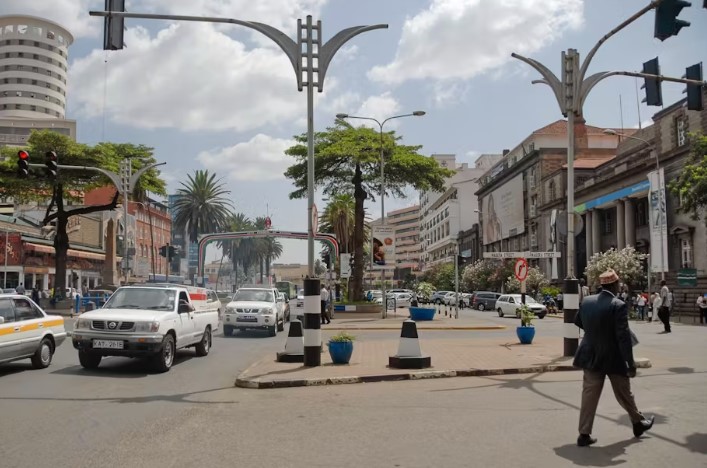Senate proposes Bill to restrict naming of roads, places in honour of living persons

The Bill also creates a County Addressing System Committee in each county, responsible for naming existing and new streets and ensuring proper signage is installed.
Kenya will no longer have places, roads and streets named in honour of people who are alive if a proposed bill sails through.
The Street Naming and Property Addressing System Bill, 2024 which is set to undergo its first reading at the Senate provides conditions and procedures for naming streets, roads and places.
"The main objective of the Bill is to provide procedures and guidelines for creating a county addressing system and for this purpose, naming and addressing of streets and public places in counties," reads the Bill in part.
If the Senate passes the bill sponsored by Isiolo Senator Fatuma Dullo, this could be a likely blow to politicians and other influential persons who have been pushing for streets and roads to be named after them.
The proposed law mandates that all properties whether residential, commercial, civic, institutional, or governmental as well as vacant parcels in developed areas, must be assigned numbers as addresses for identification.
The Bill also creates a County Addressing System Committee in each county, responsible for naming existing and new streets and ensuring proper signage is installed.
Additionally, the Bill prohibits naming streets, roads, or places using names that are offensive, particularly in relation to race, disability, gender, age, faith, or belief.
A proposed name will be rejected if it closely resembles an existing street name, promotes a company, service, or product indefinitely, or if its pronunciation or spelling is likely to cause confusion in identifying the street or public place.
"Every name of a street or public place shall be shown in a conspicuous position," the Bill reads.
The Bill states that the committee will regularly invite suggestions for naming streets and public places in the county.
It will review the proposed names for naming new or unnamed streets and public places, as well as renaming existing ones.
Public input
The committee will seek public input, consider the proposed names, and select at least three options to submit to the governor.
Upon receipt of a proposed name, the governor shall, within seven days of receipt of the proposed names, select a name and publish it in the county Gazette and any other media that would ensure the widest reach of residents of the county.
"Within seven days of publication of a name, the county executive committee member in charge of street signage, shall, in the case of a new street or an unnamed street, allocate appropriate addresses to all buildings and main facilities along the street," reads the Bill.
The county executive committee member responsible for street signage is required to replace any signs that become illegible or worn out.
A street or public place name may be changed if a petition to rename it is successfully submitted to the committee or if a majority of the committee members pass a resolution to do so.
The Bill also imposes strict penalties for anyone who destroys, removes, or defaces a street name or number.
If convicted, such a person will be liable to a fine not exceeding Sh100,000 or to imprisonment for a term not exceeding two years or both.
"In addition to the penalty, the court may require a person to restore the damaged street sign in accordance with this Act under the supervision of the committee," the bill reads.
Last year, a court quashed a decision by Nairobi county to name Dik Dik Road after COTU Secretary General Francis Atwoli.
Opposition chief Raila Odinga has several roads in the country named after him, including the former Mbagathi road.
In Nairobi County, the defunct Nairobi Metropolitan Services in 2021 decided to develop a policy for naming and renaming streets and roads in the capital.
Nairobi has no policy on naming streets, roads or buildings.
The Nairobi City County Property Addressing and Street Naming Policy (PASNAP) aimed for a transparent and predictable procedure for naming and renaming.
It also aimed to improve the ease of doing business and movement, particularly e-commerce growth and development.
"PASNAP will create a culture of identifying streets and buildings," former NMS Director General Mohammed Badi said.
Nairobi lacks a framework for harmoniously addressing property and street names, especially because e-commerce deliveries require street names.
Some roads and streets, including those in new estates and subdivisions, are unnamed.
The policy which has been before the county assembly was never adopted.
Top Stories Today













































